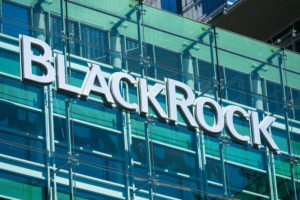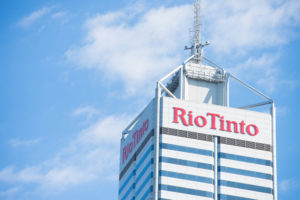Fuente: Board Agenda
Autor: Gavin Hinks, editor Board Agenda
Top stories of 2022:
This year saw economic crisis, an audit reform bill, and growing calls for corporate transparency—all against a backdrop of war in Ukraine.
President of Ukraine Volodymyr Zelensky visits Bucha, 4 April, 2022. Image: Dmytro Larin/Shutterstock.com
2022 has been extraordinary, one which saw the return of old geopolitical fears and the emergence of fresh economic crisis.
Russia’s invasion of Ukraine, climate change, inflation, rising interest rates, Elon Musk’s acquisition of Twitter, and the claim that ESG is “woke” politics—these issues and many more have played a part in corporate governance over the past 12 months.
While much of the background to which non-executives and managers must respond is global, much is also home grown. Stalled audit reform, self-inflected economic shocks, a political class in turmoil and the open wounds caused by Brexit have all contributed to an uncertain environment in the UK. Tumultuous is not too strong a word for the past 12 months.
So, here’s a tour through the biggest governance issues of the year as they happened, month-by-month.
January
In one sense, 2022 began where it ends: union activity (though of quite a different kind). The TUC launched the New Year with a call to redraft directors’ duties so they avoid prioritising shareholders over stakeholders. It was a bold bid for a legal underpinning of “stakeholders” in UK company law.
The TUC’s general secretary, Frances O’Grady, argued that company interest had swung towards shareholders and “away from working people who create wealth”. Needless to say, the government, mired in scandals, leadership change and economic crisis as the year went on, has remained silent.

That theme—the role of business in society—continued throughout the year. January also saw Larry Fink, chief executive of BlackRock, use his annual shareholder letter to stand by “stakeholder capitalism”.
“It is not woke,” Fink wrote in direct response to right wing politicians who had selected governance—in particularly anything with a hint of ESG about it—as the latest battleground. Unfortunately, for Fink, his letter may have reassured, but it in no way ended the disagreement and he would spend much of 2022 making the same argument.
Next year is already shaping up to be marked by disagreements over executive pay, as remuneration either reaches or exceeds pre-pandemic levels. “High Pay Day” in 2022 saw the median FTSE 100 CEO earn as much as the average UK worker by 9.00am on 7 January. It could be earlier in 2023.
February
US politics surprised everyone when Marco Rubio, a one-time darling of the right, proposed that workers sit on US company boards, further dragging corporate governance into political divisions and leaving everyone wondering what was in it for Republican politics.

But if controversy came from anywhere in February, it was from the mining giant Rio Tinto, after it published a report on workplace culture that revealed 21 cases of female employees who had been subjected either to an attempted rape or sexual assault in the previous five years. The report also concluded that both bullying and racism were rife. To no one’s surprise, chief executive Jakob Stausholm told reporters he felt “shame and enormous regret”.
February was, of course, the month in which Russia invaded Ukraine. Board Agenda revealed how tricky the newly imposed sanctions regime could be to negotiate.
March
As the war continued, it became clear that Russian ambitions for the war to be over in days would not be fulfilled. Ukraine’s population and army set about a courageous defence that would eventually drive Russia away from Kyiv and out of Kharkiv and Kherson.

More sanctions were imposed, but the courage of many business leaders also became clear, as they and their staff attempted to keep essential services running. If we learned anything at the time, it is that leadership is critical at a national level, but so too at the corporate level. Maxim Timchenko, chief executive of DTEK, one of Ukraine’s largest energy companies, told Board Agenda: “Getting to acceptance psychologically is the important thing so that you can make rational business decisions.”
Elsewhere, there were tribulations for another energy company, Shell, over its climate plans. Campaign group ClientEarth claimed Shell’s board members had breached their fiduciary duties by failing to properly prepare for climate change. It was a charge that would come back to haunt the oil and gas giant.
But March peaked with academic research concluding that many companies made “fake cuts” to executive pay during the pandemic. The Australian team found many US companies simply made up the difference through perks. “We uncover a widespread fake cuts phenomenon where CEOs who ostensibly accepted reductions to their base salary ultimately received total compensation in 2020 that was no lower than their remuneration for 2019.” So much for sharing the burden.
April
Elon Musk’s Twitter debacle began in April when he acquired a 9.2% stake in the company and was invited to join the board, which he declined. We all know how the story developed (though not yet how it ends) but, at the time, the governance predicament for Twitter and its board was only just developing.
In another tight spot was the European Union after launching efforts to have companies undertake human rights and sustainability due diligence in their supply chains. Academics described the proposals as one of the “good intentions” that paved the “road to hell”. Not what you want to hear when trying to do good.
May
The backlash against ESG continued to brew in May, a month in which Unilever’s chief executive Alan Jope felt compelled to defend his company’s sustainability record at the annual business leaders’ shindig in Davos. Unilever stood accused of prioritising sustainability at the expense of “focusing on the fundamentals of business”.
Jope said: “Our sustainable brands that outperform on environmental or social contribution are growing much faster than the rest of our portfolio.”

He would not be the only CEO to hit controversy over supporting societal good. Disney’s then chief executive, Bob Chapek, voiced opposition to Florida’s so-called “Don’t say gay” school rules, only for governor Ron DeSantis to remove the company’s special administrative status for its theme park land. Chapek would find himself replaced in December by former CEO Bob Iger.
In the UK, there were much more mundane concerns. The Queen’s Speech came and, to most people’s surprise, it contained an audit reform bill, though with only the sketchiest of details. However, the bill has yet to see the order paper in Parliament and continues to be a saga with more episodes—and fewer conclusions—than Lost.
June
Halfway through the year and everyone was looking forward to their summer holidays. But governance news ticked over.
In the UK, the Institute of Directors’ governance guru Roger Barker called for a new “code of conduct” for company directors, as part of the response to scandals such as those at Carillion, BHS and Patisserie Valerie. A good call but no news from government on progress.

Brussels’ patience ran out waiting for boards across the EU to improve their gender balance. A new directive was unveiled, mandating companies make 40% of non-executives female or 30% of board members in total. Equality takes another step forward.
However, if a sharp intake of breath is any measure of news, then calls for the abolition of the UK Corporate Governance code during its 30th anniversary year certainly registered. Cambridge profs Bobby Reddy and Brian Cheffins made the argument on BoardAgenda.com, claiming the code encourages “box-ticking”compliance, deters governance innovation and overlaps other bits of law and regulation.
July
No one likes an exam cheat and nervous UK regulators are no exception, ordering a review of accountancy exams following scandals around the world. The Financial Reporting Council wrote to big audit firms, asking for details about the way exams are conducted and “integrity” maintained. Cheating incidents had been reported in the US, Canada and Australia.
Another form of cheating—“greenwashing”—also rose to prominence in July when Emma Howard Boyd, chair of the Environment Agency, warned boards against cheating on their environmental credentials. “Companies that believe their own greenwashing are embedding liability, storing up risk for their investors,” she said.
August

Elon Musk’s efforts to buy—and then avoid buying—Twitter continued through the summer but then came a bombshell: “Musk forwent all due diligence…” when it came to buying Twitter. The admission was made in court documents as Twitter tried to block Musk from backing away from his $44bn offer.
The papers read: “Musk sought an urgent deal, undertook no due diligence, and offered a self-described ‘seller-friendly’ merger agreement.” M&A lawyers around the world slowly shook their heads in knowing disapproval. And they haven’t stopped.
Meanwhile, the climate spotlight intensified, especially for UK companies, who demonstrated they lead the world when it comes to offering “say-on-climate” votes for shareholders. However, according to figures from data company Georgeson, votes for climate plans fell during the year, suggesting shareholders want more “meaningful disclosures”.
September
Traditionally a quiet month as professionals adjust after summer breaks, September brought a crop of fresh stories. Calls were made for the endlessly delayed audit reform agenda to be accelerated, with letters sent to short-lived chancellor Kwasi Kwarteng asking for urgent action.
Research revealed more than half of FTSE 100 execs now have some form of ESG incentives in their pay arrangements, while a look at the corporate response to Putin’s invasion of Ukraine showed many companies quit Russia based on an “ethical stance”—but only to the extent that it supported “shareholder value maximisation”.

Another study revealed 41% of the US companies that made supportive statements during the Black Lives Matter protests of 2020 have indeed appointed a black board director, suggesting that, in some quarters, the equality argument has been heard.
October
Boardroom ethnic diversity became an issue in the UK too, with regulators calling on companies to improve transparency on measures to improve equality. The Financial Reporting Council (FRC) said: “Much greater emphasis should be placed on data analytics, and ‘equity goals’ should be built in to business strategies.”
The FRC also demanded more information from companies on how they will meet their “net-zero” carbon emissions commitments .
Climate was at stake elsewhere after a clash broke out in the Wall Street Journal between a New York prof and the leaders of Principles for Responsible Investment (PRI), a campaign body aiming to coordinate fund managers on climate issues.
Paul Tice, a professor in the Big Apple, claimed PRI had forced its ESG agenda on US companies. Meanwhile, Nathan Fabian of PRI said Tice’s understanding of ESG was “flawed” and he “mischaracterised” the role of PRI. Needless to say, there was no meeting of minds.
November
You couldn’t escape news of Twitter this year. Elon Musk decided to buy the company after all, the sale went ahead, and a kind of chaos ensured as the Tesla chief executive set about making changes.
Amidst all of that, the focus in some quarters shifted to those who had insisted on the sale of Twitter. A trio of Harvard academics wrote that when it made the sale, the Twitter board failed to look after stakeholders—namely, employees. “Twitter’s leaders chose to allocate the very large monetary surplus produced by the deal entirely to shareholders and to the leaders themselves. They chose not to use any part of this surplus to provide any monetary cushion to the tweeps [staff] who would lose their position post deal.”
Last-minute efforts were made to beef up two big pieces of EU legislation, one on non-financial reporting and the other on human rights due diligence.
Both are considered decent in principle but protests and letter writing campaigns demonstrated the way in which even well intentioned efforts can become highly contentious.
December

We enter the holiday season with greenwashing still high on the agenda. Global professional services firm PwC produced a survey showing that most investors, 87%, believe there is at least “some” greenwashing in all annual reports, while 46% believe dodgy environmental claims happen to a “large” or “very large extent”. Whatever the case, annual reports have failed to convince the people who control capital allocations.
PwC’s report coincided pretty closely with that of the Climate Disclosure Project, which found the quality of environmental reporting among companies has fallen.
A bright spot to end the year is the deal on biodiversity struck at COP 15, which should elevate the issue, alongside climate change, among corporate concerns.
PRI had coordinated investment managers to campaign for a deal. CEO David Atkin said in a statement: “Climate change and biodiversity loss are inextricably linked challenges which present systemic risk for investors.”
He’s right. And companies will have to come to terms with it. Hard work, but the right thing to do for people, planet and bottom lines.













